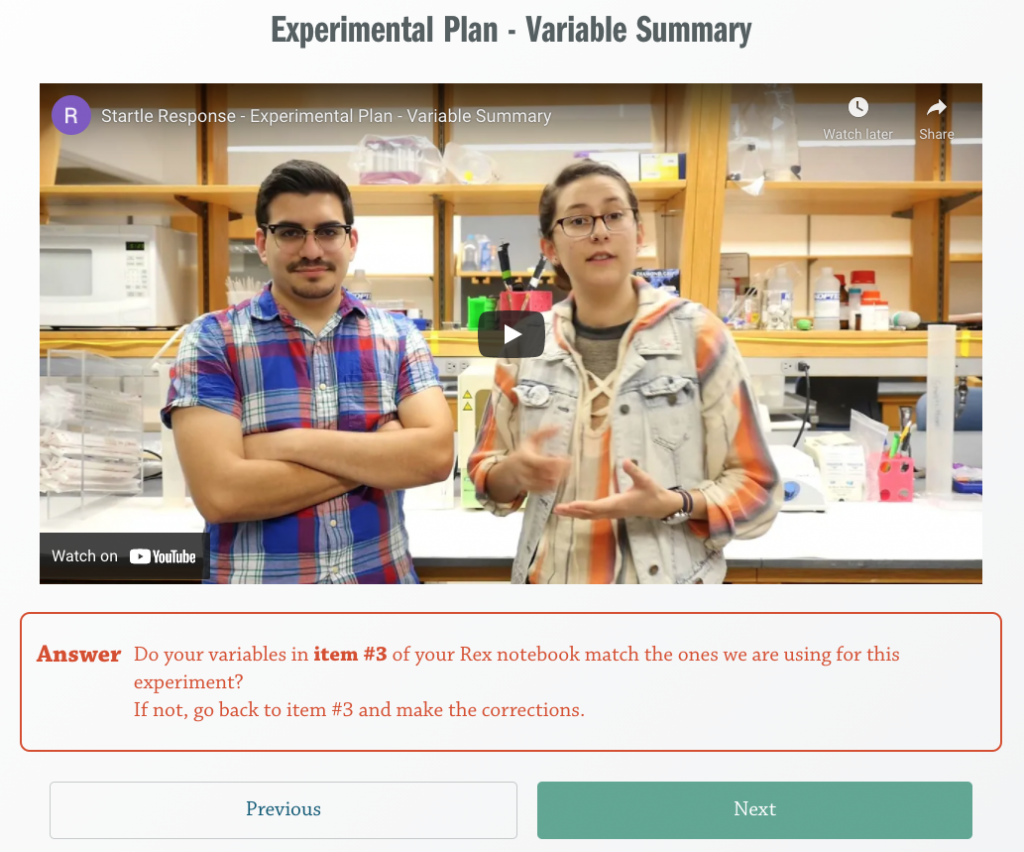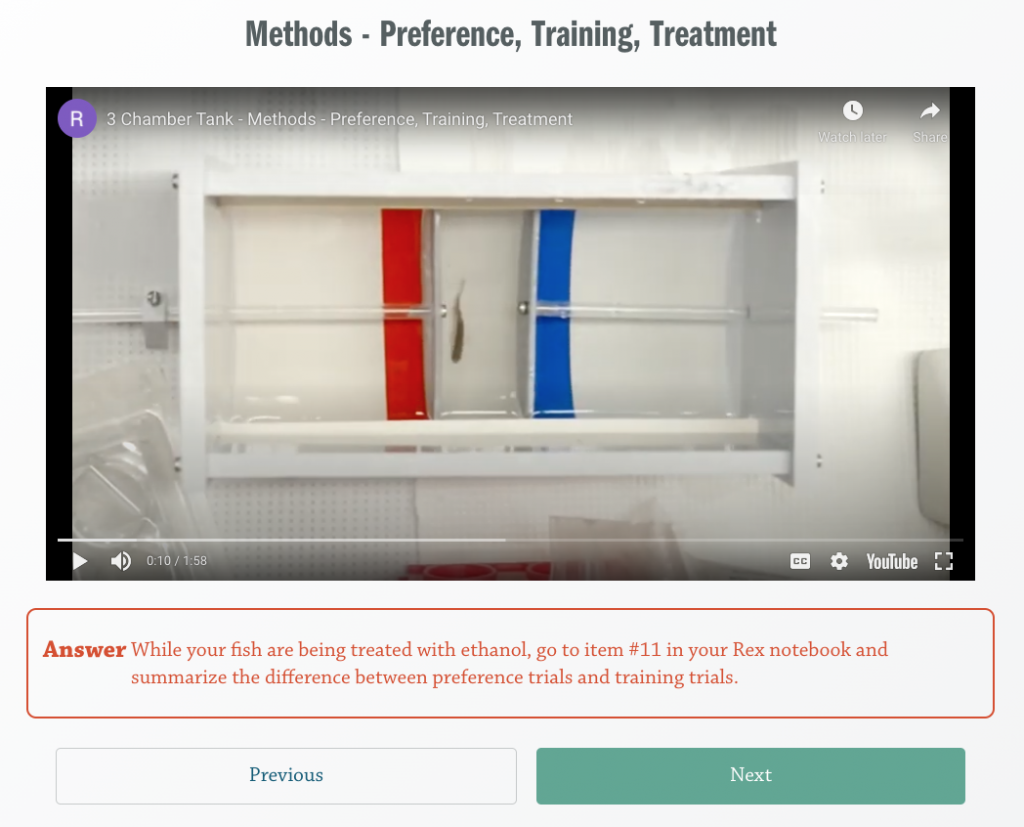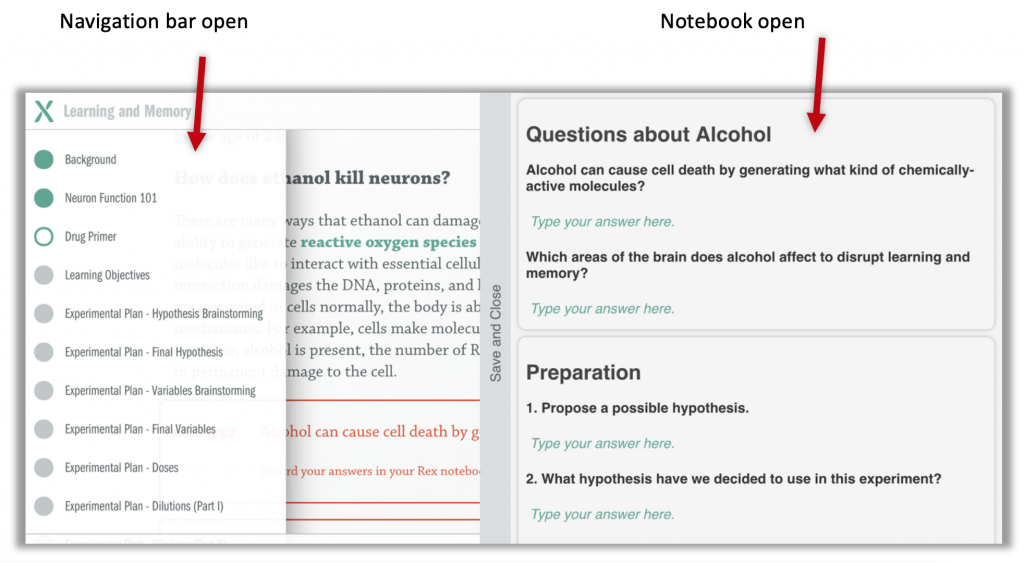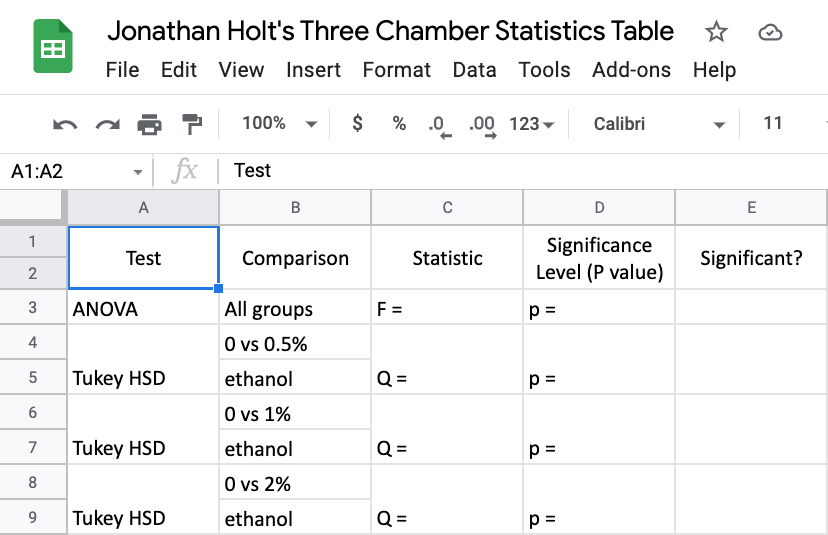Virtual lab experiments are an important component of science courses that are taught in hybrid or remote formats. Since the onset of the Covid-19 pandemic, Learning Innovation has seen an increased interest in web-based lab technologies, including classic programs like PhET, and more nuanced simulators like Labster. In this blog post, I will introduce Rex, a virtual lab program that distinguishes itself from other web-based experiments by incorporating “real” scientists and “real” experiments into a sleek online platform.

Rex (Real experiments) was developed by a team of researchers led by Dr. Rochelle Schwartz-Bloom, Professor Emerita of Pharmacology at Duke. The project aimed to increase accessibility to lab experiments by creating an interactive online platform featuring short recorded videos of scientists (graduate students) conducting real experimental procedures. Students complete their own investigations by viewing the videos and/or images and recording their observations and insights. For example, in an experiment called “Learning and Memory”, students watch zebrafish swim to either the red or blue side of a tank, which are distinguished by varying dosages of alcohol (unknown to students at the time). Students observe the behaviors of many different fish. After learning which trials corresponded to which dosages of the drug, students are guided through statistical analyses to determine the effect of alcohol on learning and memory. In addition to videos of experimental procedures, each lab includes short clips that introduce background material, teach mathematics and/or statistics needed for the analysis, and encourage critical thinking. Videos are accompanied by text and illustrations that guide students through various parts of the experiment.

One of the most innovative elements of Rex is the “Rex notebook”, an online document where students type responses to prompts (e.g., “Propose a possible hypothesis.”). The Rex notebook is also a place for students to record choices for the parameters of the experiment, such as dose, age of the specimen, etc. For questions that have right and wrong answers, Rex uses color-coding and dynamic feedback to guide students. The Rex notebook is also integrated with pre-formatted Google Sheets tables where students record and analyze quantitative data. Background information is provided for statistical testing (e.g., ANOVA). When the experiment is completed, the entire Rex notebook (text and tables) can be downloaded by the student and/or directly submitted to the instructor online.


Rex offers seven different experiments that pertain primarily to biology and psychology:
- Learning and memory: The three-chamber tank test & zebrafish exposed to ethanol
- Stress and anxiety: The novel tank test & zebrafish exposed to caffeine
- Spatial learning: The Morris water maze & adolescent rats exposed to THC
- Development of sense organ function: The startle response in zebrafish larvae exposed to ethanol
- Development of sense organs: Viability of neuromasts in zebrafish larvae exposed to ethanol
- Gene expression – smoking: In situ hybridization of mRNA in rats exposed to cigarette smoke
- Gene expression – THC: In situ hybridization of mRNA in adolescent rats exposed to THC
Each of the seven experiments includes a wealth of resources, such content refreshers, critical thinking questions, practice worksheets, and a comprehensive lab guide. Supporting documentation is available in both pdf and doc form, so you have the option to adapt the materials to suit your needs.
Ready to get started? Head to www.rex.duke.edu and click the sign-up button at the bottom of the page to make a username and password. If you have any questions about Rex, feel free to email Rochelle Schwartz-Bloom at schwartz.bloom@duke.edu. To stay informed of the latest teaching tools and resources, you can visit our events page and sign up for our newsletter here.

Pingback: Weekly Resource Roundup – 19/5/2021 | Learning and Teaching Enhancement Unit
Pingback: Crynodeb Wythnosol o Adnoddau – 19/5/2021 | Uned Datblygu Dysgu ac Addysgu